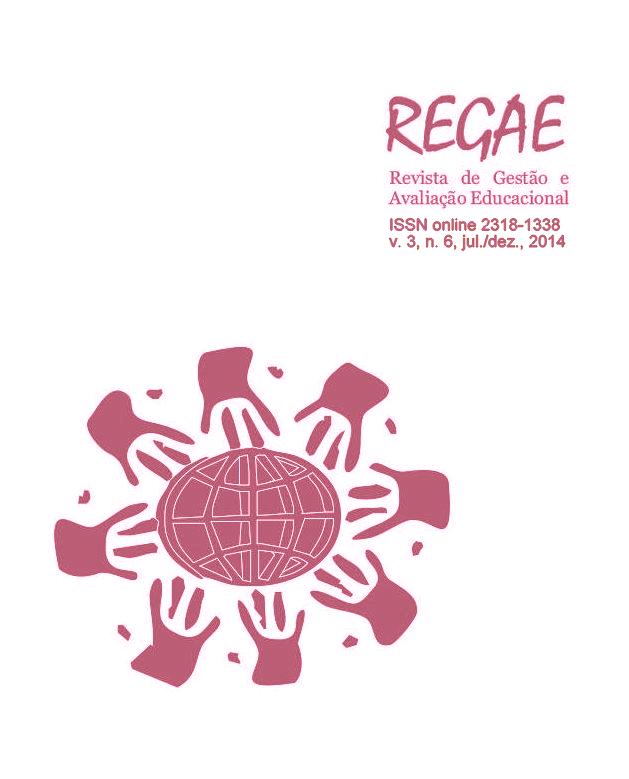I do not gave very well with school: a study with young middle school
DOI:
https://doi.org/10.5902/2176217113539Abstract
This article presents the results of research entitled Youth cultures and education: a study with young students of Santa Maria that departed from the formative processes, which sought to understand the reasons that lead many young people to move away from school training processes. The methodology used was based on ethnographic qualitative paradigm. Instruments of production data such as observation, interview and open field diary were used. The results showed that the process of alienation still start at the elementary school and the weakness of the link between the school and the student is linked to a process of resistance, related to factors such as inadequate methodologies and problems in the communication process.
Key-words: public policies, youth school, high school.
Downloads
References
ABRANTES, Pedro. Os sentidos da escola: identidades juvenis e dinâmicas de escolaridades. Oeiras: Celta, 2003.
ANDRE, Marli; LÜDKE, Menga. Pesquisa em educação: abordagens qualitativas. São Paulo: EPU, 2000.
BRASIL. Constituição da República Federativa do Brasil. Brasília: Senado Federal, 1988.
BRASIL. Lei de diretrizes e bases da educação nacional: n. 9394/96. Brasília: Senado Federal, 1996.
BRASIL. Resolução n. 2 de 30 de janeiro de 2012. Diretrizes curriculares nacionais para o ensino médio. Brasília: MEC, 2012.
CHARLOT, Bernard. Da relação com o saber às práticas educativas. São Paulo: Cortez, 2013.
DAYRELL, Juarez. O jovem como sujeito social. Revista Brasileira de Educação. Anped, n. 24, 2013, p. 40-52.
DAYRELL, Juarez. A escola faz as juventudes? Reflexões em torno da socialização da juventude. Educação e Sociedade. Campinas, v. 28, n. 100, 2007, p. 1105-1128.
DELEUZE, Giles; GUATTARI, Félix. O liso e o estriado. In: DELEUZE, Giles; GUATTARI, Félix. Mil platôs: capitalismo e esquizofrenia. Rio de Janeiro: 34, 1997.
FREIRE, Paulo. Pedagogia da autonomia: saberes necessários à prática educativa. São Paulo: Paz e Terra, 1996.
LÜDKE, Menga; ANDRÉ, Marli. Pesquisa em educação: abordagens qualitativas. São Paulo: EPU, 1986.
MOEHLECKE, Sabrina. O ensino médio e as novas diretrizes curriculares nacionais: entre recorrências e novas inquietações. Revista Brasileira de Educação. Rio de Janeiro, v. 17, n. 49, 2012, p. 39-58.
ORTÍ, Alfonso. La apertura y el enfoque cualitativo o estrutural. In: FERNANDO, Manuel Garcia. El análisis de la realidad social métodos y técnicas de investigación. Madrid: Alianza, 1989, p. 171-203.
PAIS, José Machado. Buscas de si: expressividades e identidades juvenis. In: ALMEIDA, Maria Isabel Mendes; EUGENIO, Fernanda (orgs.). Culturas jovens: novos mapas do afeto. Rio de Janeiro: Jorge Zahar, 2006, p. 7-21.
RIO GRANDE DO SUL. Proposta pedagógica par o ensino médio politécnico e educacional profissional integrada ao ensino médio. Porto Alegre: SEC, 2011.
SILVERMAN, David. Interpretação de dados qualitativos: métodos para análise de entrevistas, textos e interações. Porto Alegre: Artmed, 2009.
SPOSITO, Marilia Pontes. Algumas reflexões e muitas indagações sobre as relações entre escola no Brasil. In: ABRAMO, Helena: BRANCO, Pedro Paulo Martoni (orgs.). Retratos da juventude brasileira: análises de uma pesquisa nacional. São Paulo: Instituto Cidadania; Funções Perseu Abramo, 2005, p. 87-128.
STEINER, George. Lições dos mestres. Rio de Janeiro: Record, 2005.
TOMAZETTI, Elisete et. al. Os sentidos do ensino médio: olhares juvenis sobre a escola contemporânea. São Leopoldo: Oikos, 2012.
Downloads
Published
How to Cite
Issue
Section
License
Authors keep copyright and concede to the magazine the right of first publication, with the work simultaneously licensed under the Creative Commons Attribution 4.0 International, non-commercial license with no derivative work, which allows to share the work with no author recognition and initial publication in this magazine.
Authors has authorization to overtake additional contracts separately, to distribute a non-exclusive version of the work published in this magazine: For example: to publish in an institutional repository or as a chapter of a book, with authorial recognition and initial publication in this magazine.
Authors are allowed and are encouraged to publish and distribute their work online. For example: in institutional repositories or in their own personal page – at any point before or during the editorial process, because this can result in productive changes, as well as increase the impact and the mention to the published work.






